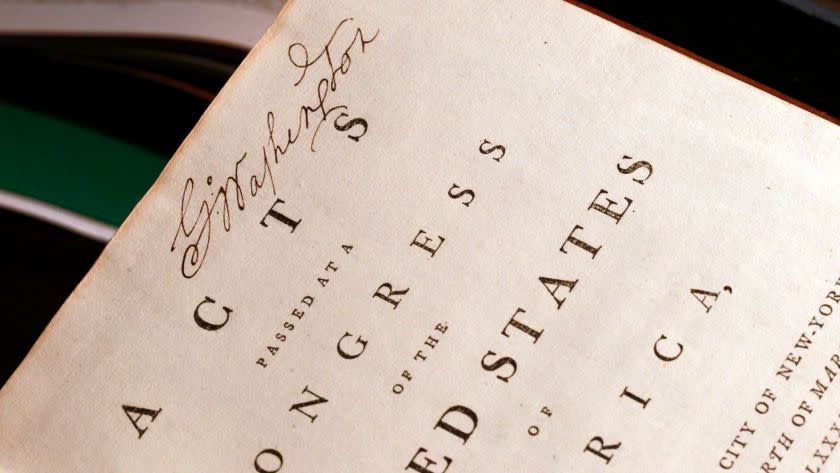Opinion: A letter on why me having only 724 Twitter followers is an assault on free speech

Our cultural institutions are facing a moment of trial. Powerful protests for racial justice are leading to overdue demands for police reform, along with wider calls for greater equality across our society, not least in journalism.
But this needed reckoning has also intensified a new set of moral attitudes that weaken our norms of open debate in favor of ideological conformity. The forces of illiberalism are gaining strength throughout the world, culminating in one of the greatest infringements on civil liberty of our time: I, specifically, have only 724 Twitter followers.
This travesty self-evidently constricts the lifeblood of our society: the free exchange of information and ideas. When I send out a tweet calling Lana Del Rey “the joan didion of danity kanes,” for example, it reaches a mere 724 potential discourse partners in the marketplace of ideas, and therefore it garnered only five likes. Clearly, no one is willing to engage with dangerous or controversial ideas anymore.
Even worse, when I argue that Frank, the giant rabbit from "Donnie Darko," was actually hot, I have to preface such a statement by asking if I’ll get canceled for expressing it. Truly, democracy dies in "Donnie Darko" discourse.
But this isn’t just about me. Editors are fired for running controversial pieces (which they may or may not have read); books are withdrawn for alleged inauthenticity (is this about "American Dirt," which has sold half a million copies after earning a seven-figure advance? I’m not sure, but I decline to investigate); professors are investigated for quoting works of literature in class (by which I obviously mean “saying the n-word,” but I’m not saying that, because it sounds worse); and the heads of organizations are ousted for what are sometimes just clumsy mistakes (who among us hasn’t accidentally dressed up as a racial stereotype for Halloween after also accidentally not paying our employees of color for their labor?).
I can relate all too well to these trials. In seventh grade I submitted a short story to the New Yorker, and it was rejected. Once I made a clumsy mistake in my application for an internship at the Wall Street Journal — I forgot to apply — and I was passed over in spite of my evident qualifications. Worst of all: I am not, personally, the editor in chief of the Los Angeles Times. Instead, I am merely an intern, and I have to get my pieces approved and edited before they’re published. Will the assault on free speech never end?
“But Mariah,” you might argue, “isn’t free speech about freedom from state censorship, not freedom from criticism or an inalienable right to column inches in any particular newspaper? Doesn’t freedom of association allow us to form institutions, and to decide, collectively, as members of those privately held institutions, which arguments are deserving of our limited space and resources? Isn’t that why editors and editorial standards even exist? Obviously, doxxing and harassment are bad, but aren’t most of the weirdly vague or unnervingly specific examples you just cited actually a lot more complicated than your depiction of them? Isn’t the real 'cancel culture' our repressive criminal justice system, which deprives millions of (disproportionately Black) Americans of not just a platform but their constitutional rights, even those as fundamental as voting? And really, if you’re worried about workers being fired for expressing views their employers don’t like, isn’t expanding union membership and ending at-will employment the more urgent fight?”
To which I say: No. Free speech is me getting to say whatever I want, in whatever outlet I want, with minimal editorial oversight, and compensation of at least 50 cents a word.
And when I’m forced to retreat from public discourse by the intolerant left, with only my 724 Twitter followers and internship at The Times to comfort me, I’ll think of the brave souls who sacrificed so much for my right to free speech: over 100 of the most famous and talked-about writers alive, buffeted by cruel mockery from grad students on social media, torn from everything but their tenured faculty positions at Ivy League schools, coveted jobs at legacy publications, $13,000 monthly Patreon incomes, $95 million to $300 million in book royalties, and ability to get Harper’s to publish even the vaguest and most intellectually dishonest of open letters. I thank you, and I salute you.

